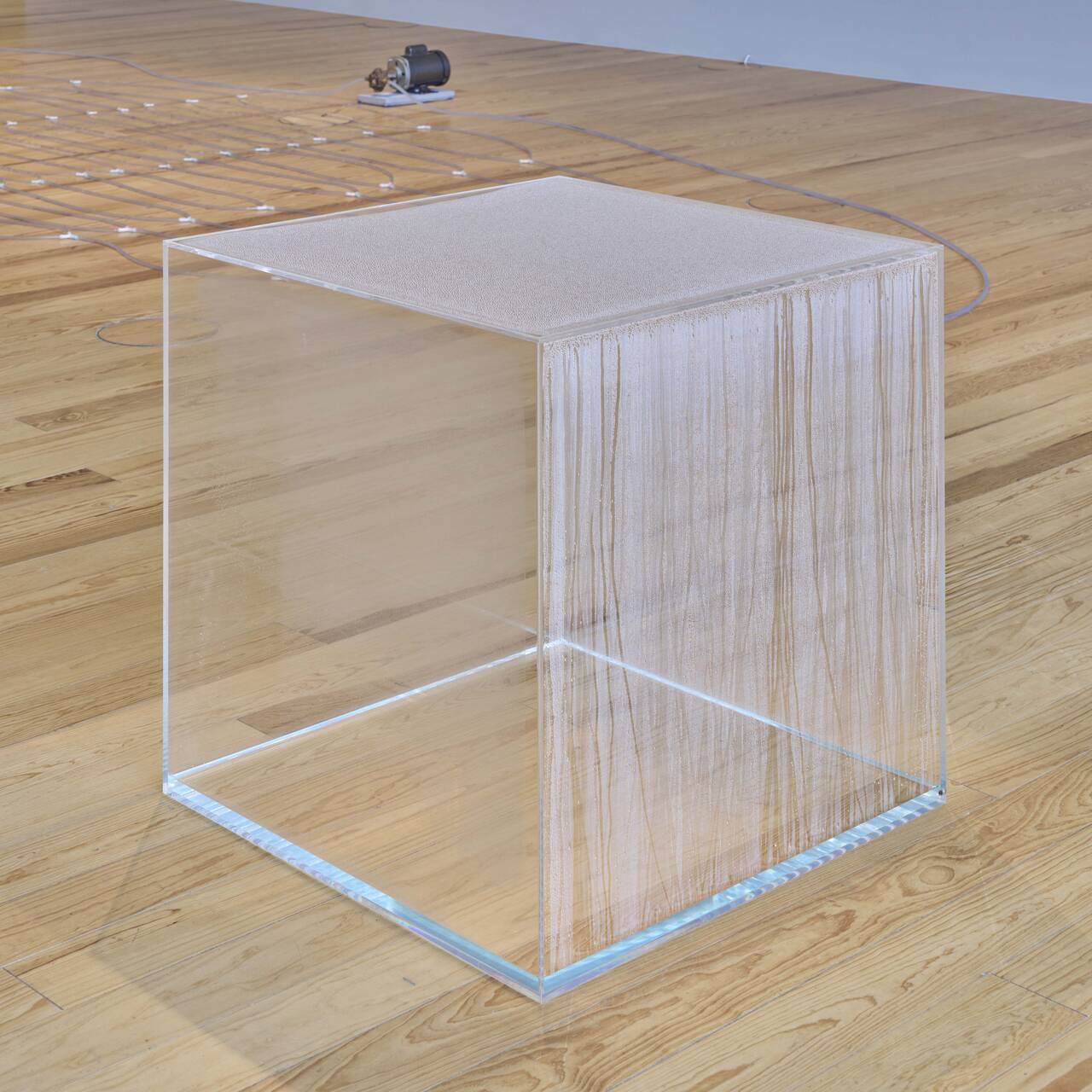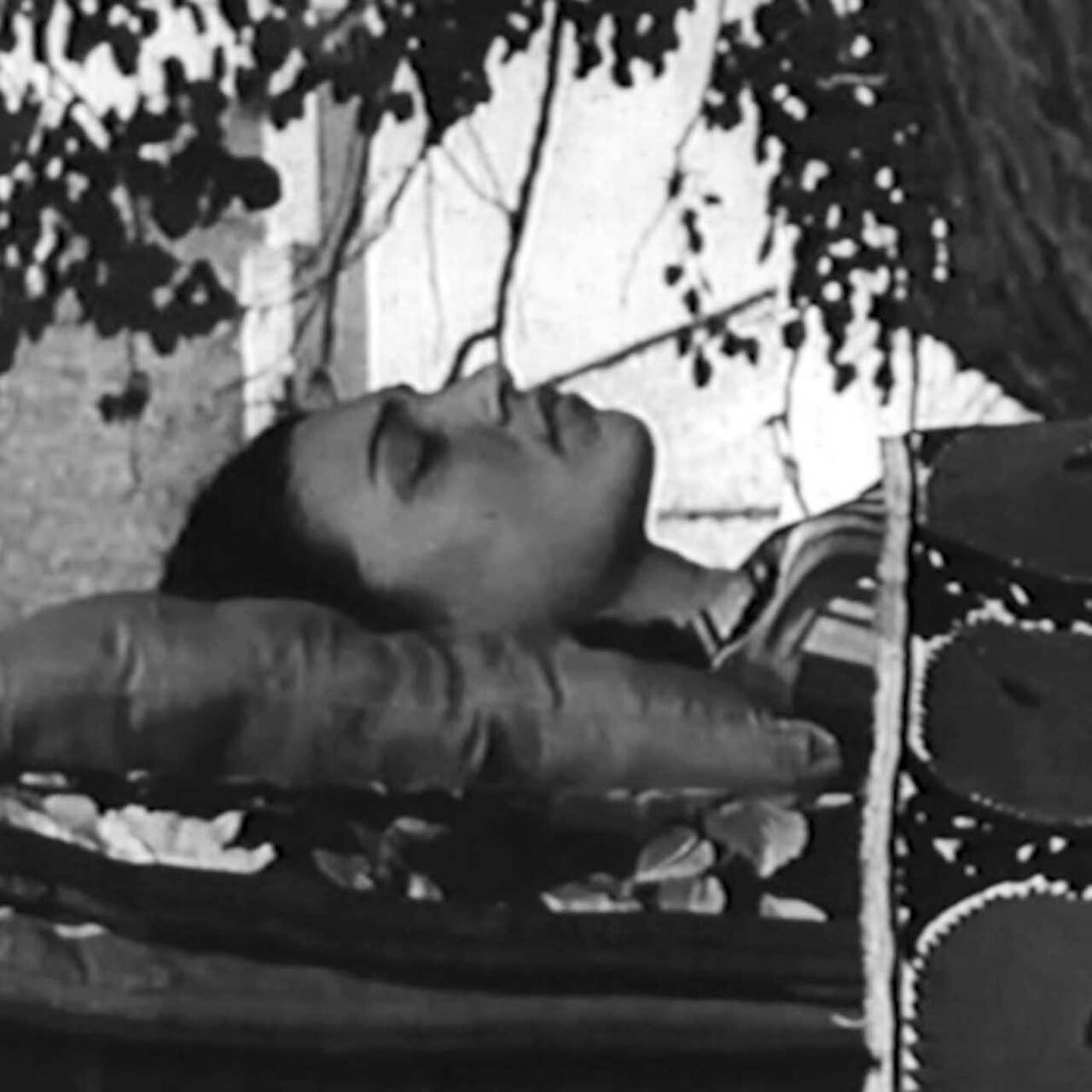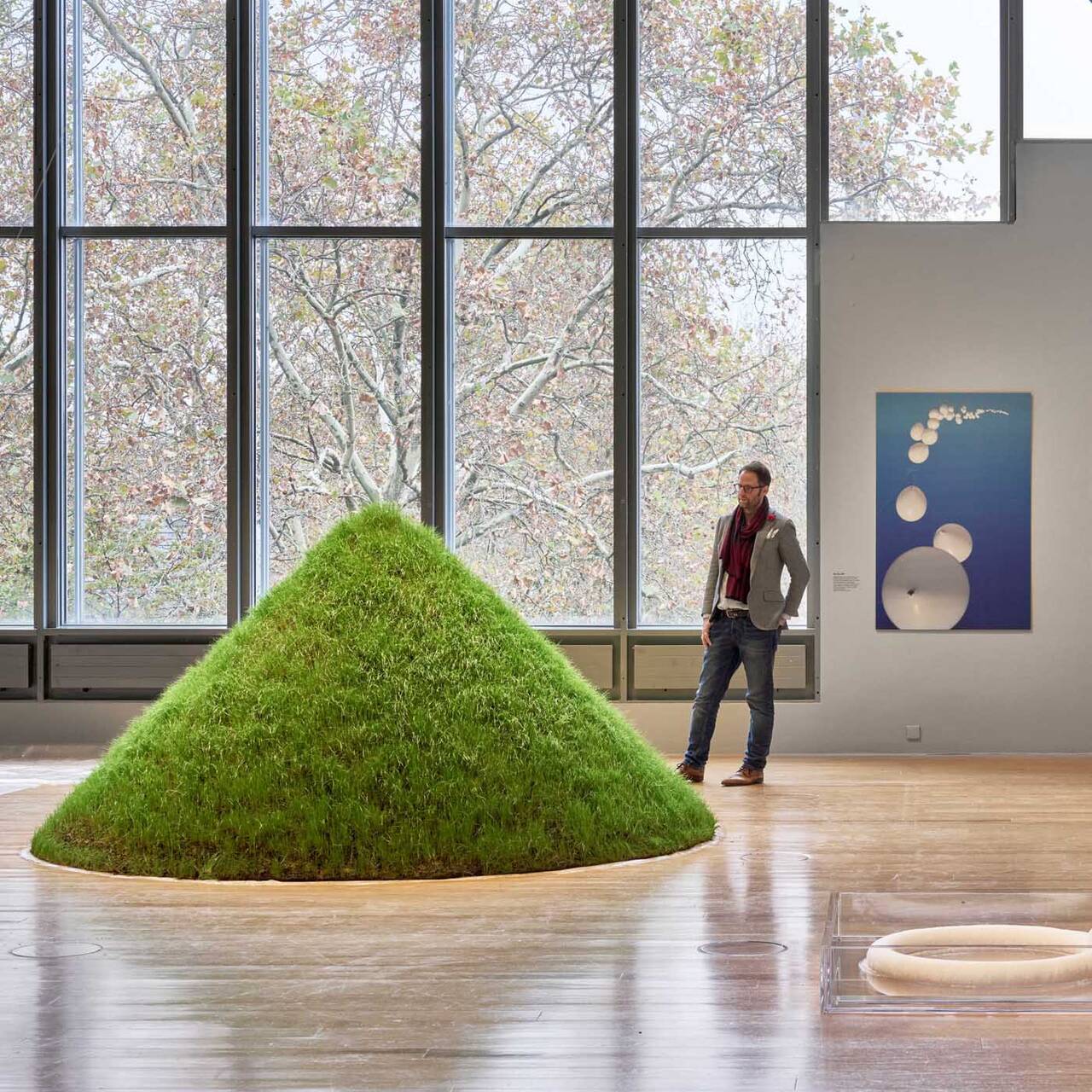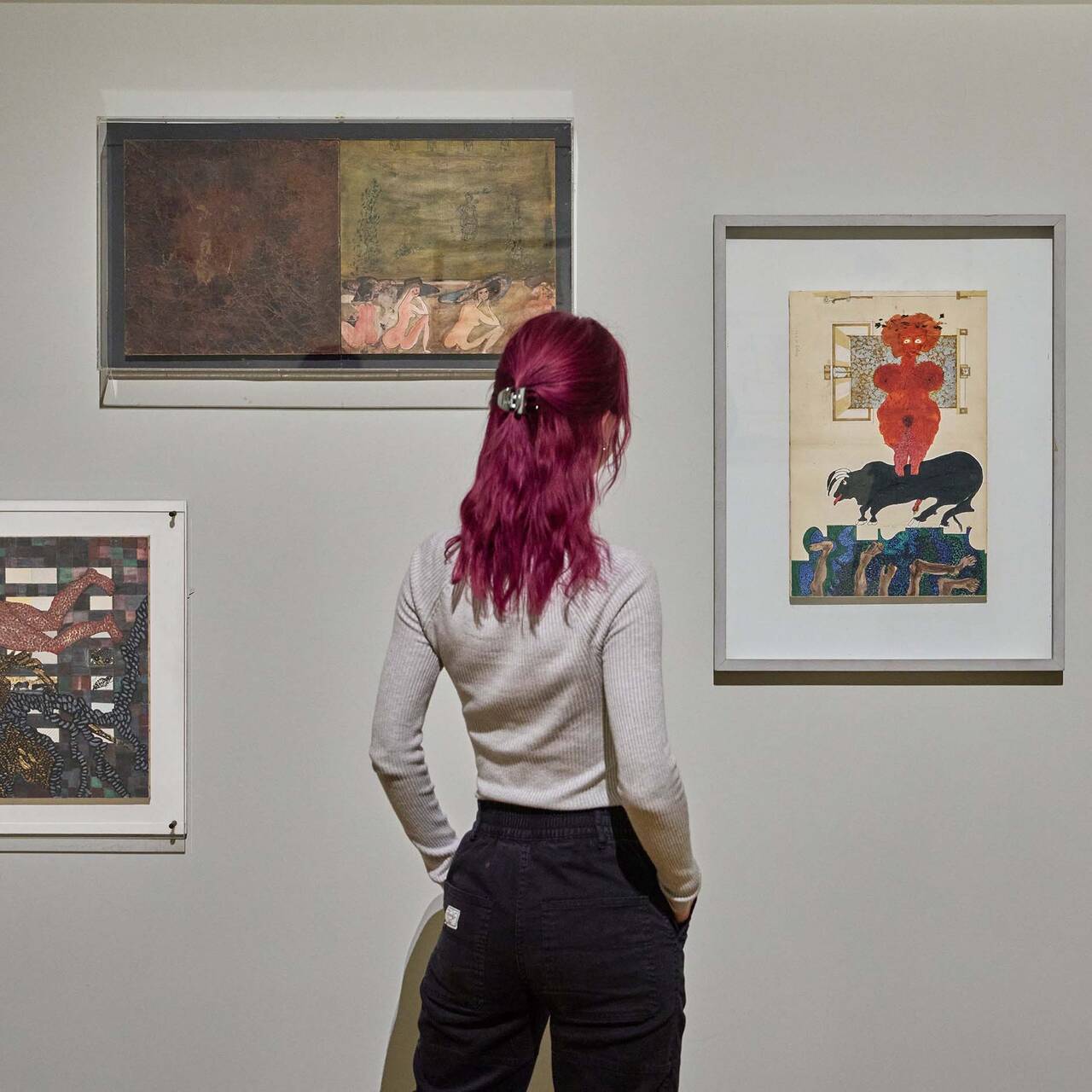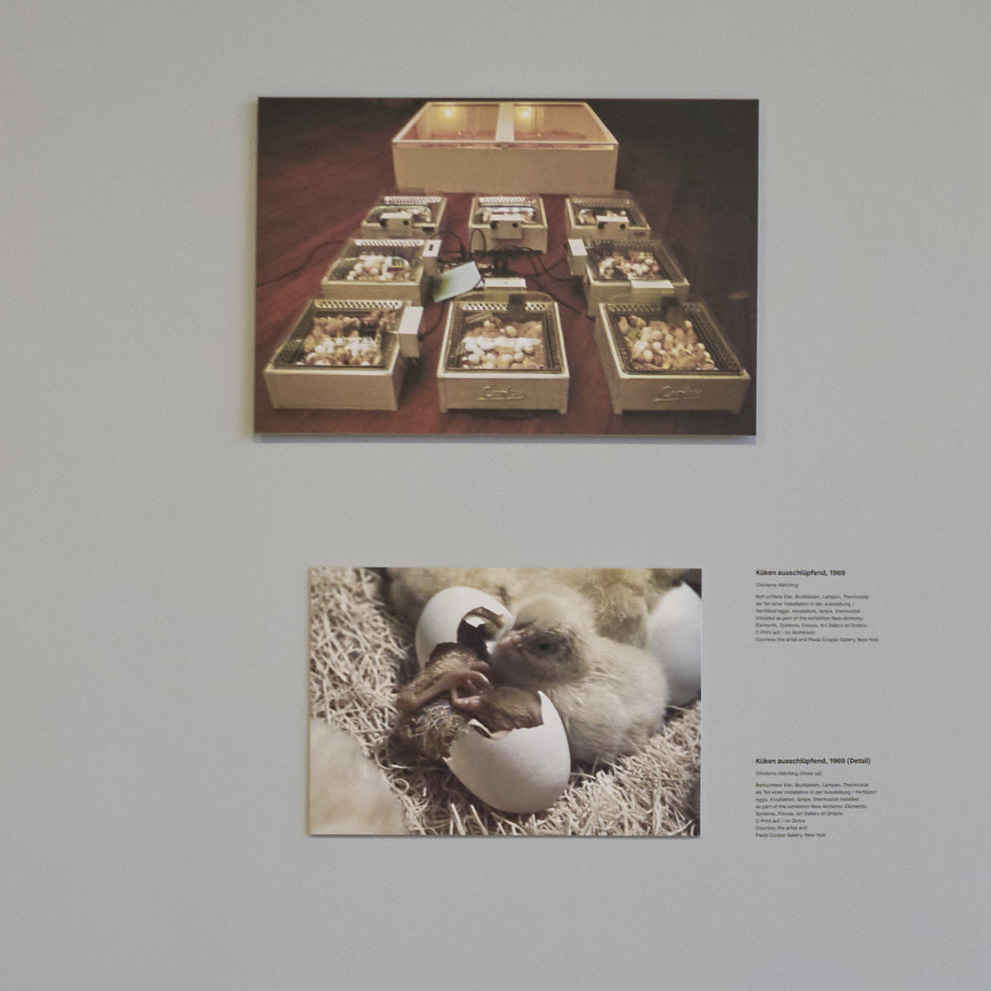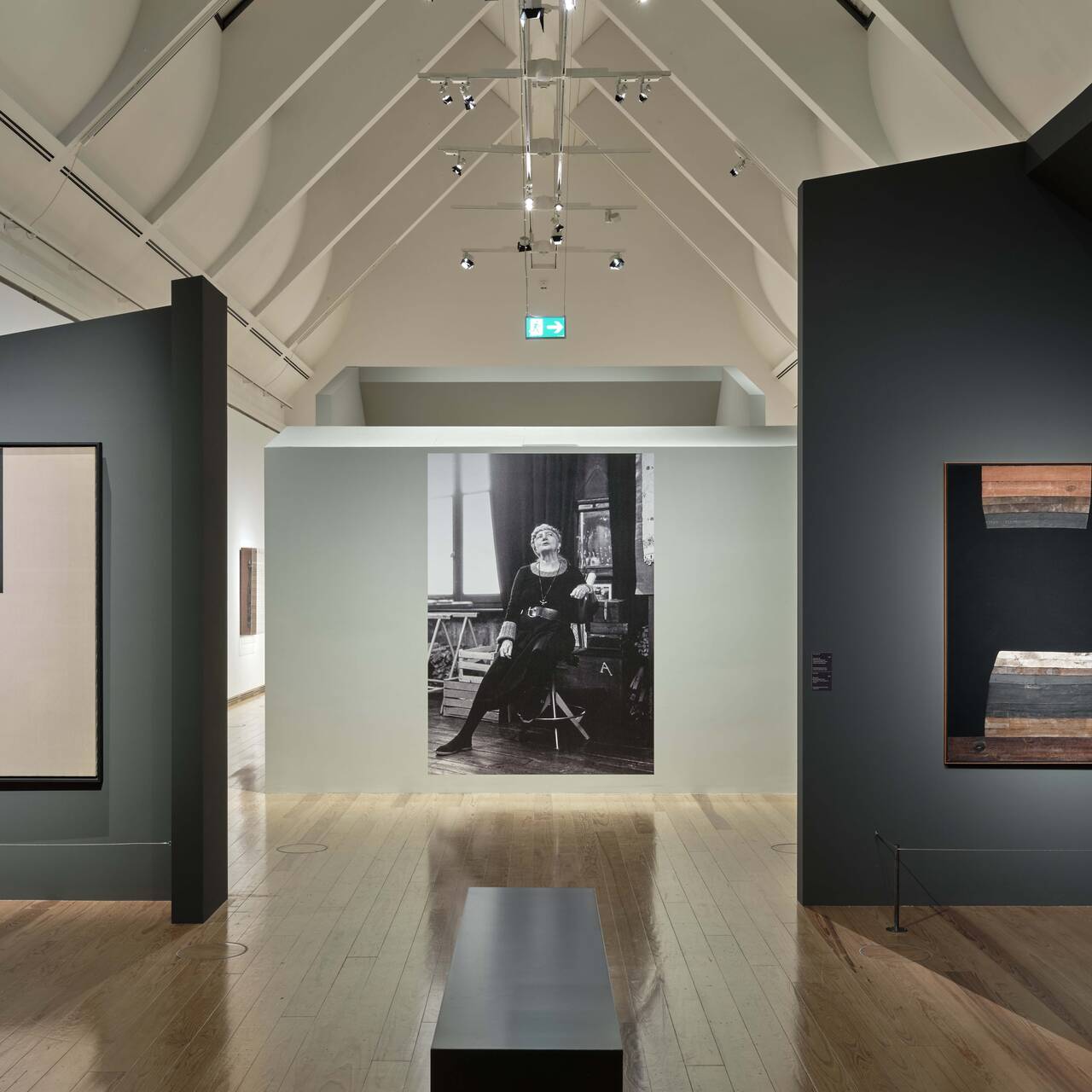Sometimes all you need is a sunrise and a piece of moss: Inka Essenhigh’s works are populated by mythological creatures. While painting, she relies entirely on her inner self.
Inka Essenhigh has been exhibiting her fluid, dream-like landscapes for the past two decades. She is the second of four artists forming part of the interview-series “Surrealism reloaded”–together with Jessica Stoller, Rose Nestler, and Julie Curtiss. Their work is equally inspired by Surrealist motives and themes. Following in the footsteps of the Fantastic Women they do not only revive Surrealism but re-interpret its topics, such as femininity, from a highly contemporary perspective.
For Essenhigh, it all started with automatic drawing and free association to reach the subconscious–a technique often used by Surrealist artists. Her brightly colored, surreal paintings with sprites, fairies, and animated flora and fauna fusing with the space around them take the viewer to another world, showing us that different realities are possible.




Could you pick one of your pieces and talk a little bit about your process: What are the topics you are interested in?
I painted “Dawn’s Early Light” up in Maine where I spent two months in the summer. I brought up two canvases, but they didn’t need to be finished by the time I left. My plan was to just look around for something that would inspire me, and, in this case, it was a little patch of early morning sunlight hitting some moss in the forest. It felt like a mini explosion of riotous activity in the middle of the dark stillness of the forest.
When I start a painting, I concentrate on the experience that I want to make the painting about. A color scheme comes to me and I mix the colors, which can be anything as long as they feel like the experience. In this case they were close to the colors I actually saw. So, an image comes to me and I start painting. I try to get the whole painting down the first day. The next day the enamel paint is completely dry and I can sand down any parts I’m not satisfied with and repaint it. Over the next few months, I build up the paint and sharpen the image. The black shapes on the flat, rounded shape in the middle are like a pattern on a moth that I saw. Wild strawberries, beetles, thistles, blueberries, and animals that came around my studio made it into the painting, too. I adjust the color (or change it completely), add and subtract details, and do whatever it takes to bring life into the world I'm making.
“Dawn’s Early Light” is populated by fantastic, mythological creatures, a topic that fascinated a lot of Surrealist artists. What does Surrealism mean for you and what kind of role does it play in your work?
Surrealism is how people understand my work. If I have to describe my work to someone, I’ll say I’m a Surrealist and they’ll understand that the appearance is grounded in three-dimensional form and that things don’t need to make sense. I think my work is more related to the Symbolists, who were precursors to the Surrealists.
That makes sense. Is there an artist from the “Fantastic Women” that you particularly admire?
I admire them all! They all had to have character and probably most of them were characters.
Surrealism is how people understand my work.

From goddesses to fairies, a lot of the figures in your paintings are women and the female body plays an integral part of your work. Why?
I do paint mostly women and honestly, I don’t know why. I’ve always assumed it’s because I’m female that I make blobby forms that end up looking more female then male. Often, I make what I make and then tolerate what it looks like.
I see. Female friendships and networks played a vital role for the women artists in the 30s and 40s. You have a large following on Instagram, do you think the platform is the new salon for the female squad?
When I was a young art student back in the late 80s/90s I wanted to be in the ‘boys club’. In that way I relate to Dorothea Tanning: when I asked her if she would be in a show with me which would feature my work alongside someone who’s an influence or forerunner for me, she said, “No!” She said that she would never show with another woman! She was 100 years old then, and I wasn’t going to lecture her about how she didn’t have to think that way anymore. Instagram was great in the beginning, but now I see it as a business tool. It’s a salon for everyone.
Agreed! One last question, maybe slightly off topic, but since we’re living through these strange times right now and have to follow Stay-at-home orders: How has the current quarantine situation changed your work?
I’ve had to leave my studio building and set up a studio in my basement, but I’m able to continue working as I was before. I remember 9/11 when I could feel a change in the air. I wanted my work to change to meet the times. This time, I’m right where I want to be. I believe I’m making exactly the art that needs to be made at this moment.
